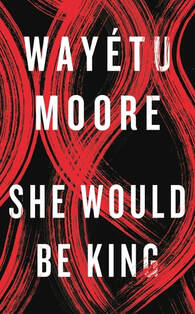Zeina by Nawal el Saadawi translated by Amira Nowaira
While her fans might have a clear image of Zeina, unfortunately I did not. Born to upper-class Bodour after a brief affair with a fellow student who dies in prison after a demonstration, she’s abandoned on the street. But she recognises Bodour’s servant and nanny as her mother, and her daughter, Mageeda, as her childhood friend.
Did I miss the bit where the nanny finds her? How does she live with her and on the streets? Where does the money come from for her to attend school (if only for music lessons)? How did Bodour hide her pregnancy from her parents and husband? Where did she give birth?
While these questions remained unanswered (although I was satisfied she honed her talents courtesy of the music teacher’s free tuition), mundanities, such as Mageeda and Bodour’s chunky fingers, are relentlessly repeated. As for the nonlinear narrative, this isn’t like loops in a string, but a tangled knot, where time stands still, everything seemingly happening simultaneously.
What is clear is that the Cairo of the novel is not a place where a woman would choose to live. Or a child. Or someone born in poverty (apart from Zeina). Or anyone without absolute power. The revolution to overthrow the monarchy in Bodour’s youth brings not freedom but further oppression, as patriarchy, self-interest and misogyny are endorsed by a particular reading of the Qu’ran. Street kids are raped, dissidents disappeared, corruption abounds and women, even those like Mageeda and Bodour in high-status jobs lack autonomy over their bodies and minds. Especially when those minds (as most of the main characters’ seem to be, including the men) are overseen by a dodgy psychiatrist who seems to be drugging them, and administering electric shocks in order to rape them.
Amid these unhappy characters, Bodour has two alternative role models. One is her alter ego, brave heroine of her lost novel; the other a friend who closely resembles the narrator of Nawal el Saadawi’s first book, the semi-autobiographical, Memoirs of a Woman Doctor. The rest, I’m afraid, is polemic. Essential polemic perhaps, but it’s not a great success as a story.
I jumped at the chance of three novels from Nawal el Saadawi’s backlist, recently reissued by Saqi Books. I thought I was a fan. But maybe I’m a fan of her politics but not her fiction. Maybe I came to her work in my youth through her nonfiction, when it was refreshing to learn about feminism beyond the western world. You’ll find my reviews of the other two books here: Love in the Kingdom of Oil; Memoirs of a Woman Doctor.
She Would Be King by Wayétu Moore
Born into slavery on a plantation in Virginia, June’s superior strength seems like a curse. But, although he can’t save his mamma from a whipping, his own back doesn’t scar.
The son of a white British colonialist researcher, and a former slave in the Blue Mountains of Jamaica, Norman’s superpower is his ability to disappear. Which comes in handy when the three meet up in Africa: he discombobulates the Europeans who attack them by becoming invisible and knocking the rifles out of their hands. Then June pitches in with his fists, urged on by the voice of his mother, now merged with the wind.
Meanwhile, the American Colonisation Society is shipping freed slaves back to Africa to establish a community in America’s image, except that beneath their long skirts and trousers the citizens’ legs are black. Separated from her friends, Gbessa is taken in by a well-off family in Monrovia, where she learns English and finds God. When Norman comes to warn the community that, although the slave trade is officially abolished, slavers are still operating, she doesn’t want to know.
Although I don’t mind reading about the transatlantic slave trade again and again, I particularly appreciated how Wayétu Moore takes the story in a new direction by highlighting the Maroons’ resistance in Jamaica and Liberia’s early years. The parallels between the mores of the Monrovian elite and those who used to own them – in dress, aspiration and the idleness of wives – would be amusing if it weren’t such a tragic indictment of their estrangement from the cultures their ancestors were forced to leave behind.
American Wayétu Moore’s debut novel is published in the UK this month by One/Pushkin Press. Thanks to them for my review copy. For another novel about Liberia, see Land of My Fathers.
























 RSS Feed
RSS Feed





















